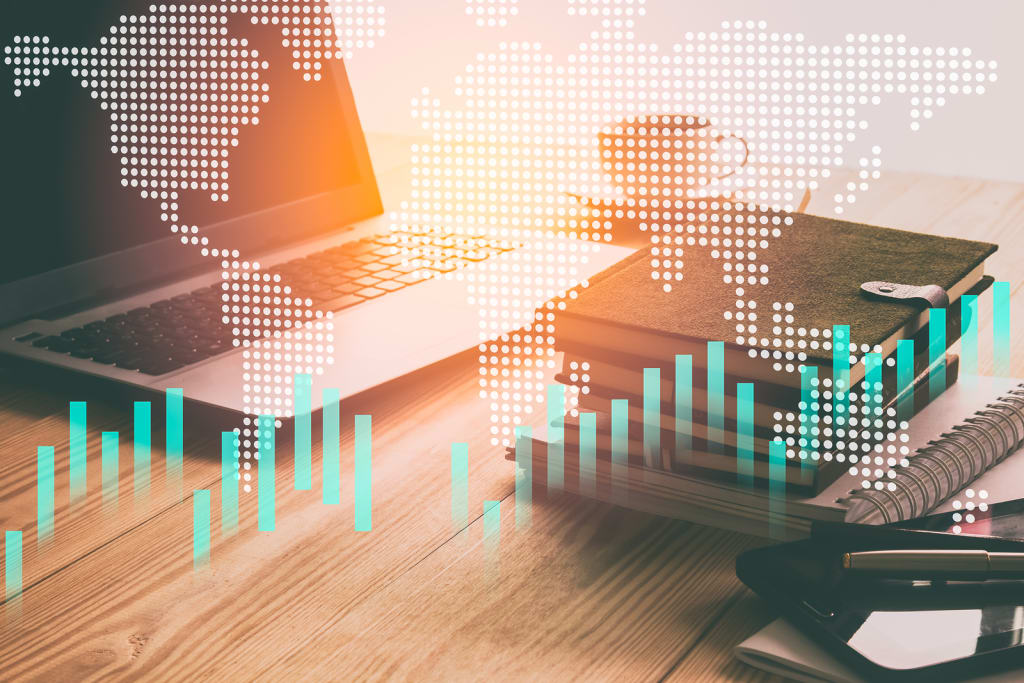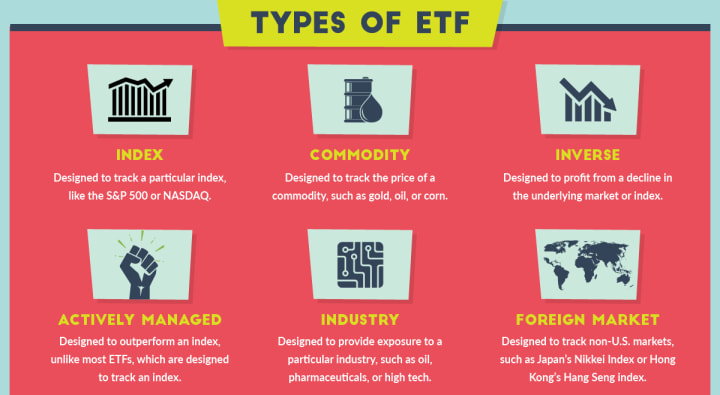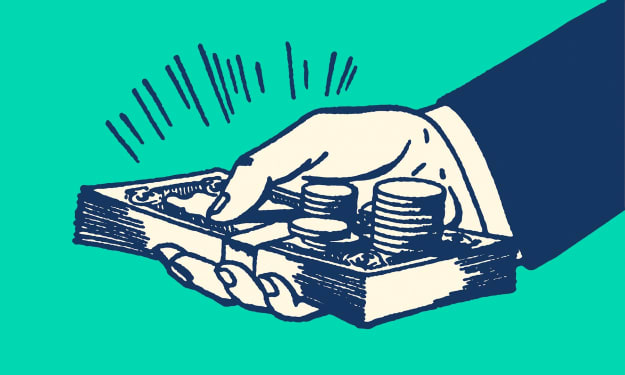What Is an ETF?
You hear about them getting traded and promoted by apps, right? You might have even bought one. So, what is an ETF?

If you just recently decided to start investing in the stock market, you might have given micro-investing apps a try. On the best micro-investing apps like Stash and Acorns, you'll notice that their platform is primarily focused on investing in ETFs.
In many cases, new investors will be told by advisors or mentors that they should consider them as a first investment. You might be wondering what is an ETF at this point—and rightfully so. You shouldn't invest in something that you don't know much about.
Not hep to the jive on Wall Street lingo? For those newbies who are curious, here's what you should know about ETFs before you buy them up.
What is an ETF?
First, let's start with the basics of what an ETF is. ETF stands for Exchange Traded Fund—and it acts a lot like a stock does. An ETF is a type of fund, which means that it's actually an investment that's made up of multiple different investments "glued" together and sliced up into smaller-priced shares.
An ETF can be composed of tens, hundreds, or even thousands of different investments. Every investment offered in the fund is then sliced up in a way that allows investors to have a percentage of each in every share that's sold by the ETF.
ETFs are professionally managed funds. The managers are supposed to monitor each investment in the ETF's portfolio to make sure that it's making you money. If an investment they chose isn't working well, they will sell off the investments they have and replace it with a new one.
Like stocks, ETFs are traded on major stock exchanges like the NYSE or NASDAQ.
What is an ETF supposed to do?
By grabbing a bunch of different investments and "slicing" them into shares, ETF managers are able to offer people a way to get returns from a wide variety of different investments that they otherwise wouldn't be able to afford at a lower price.
ETFs also reduce the risk of loss by allowing investors to have a diverse range of different investments at a lower price, making it overall a more low-risk investment for your money. Should one investment not perform well, the others will decrease the overall loss you'd have.
In other words, these funds are supposed to allow you to buy a portfolio without having to do too much due diligence, lower risk, and also just save a lot of time when it comes to managing your investments.
What is an ETF made out of?
Typically, an ETF is made out of a wide range of different stocks. Some might also include bonds, securities, and commodities. It all depends on which ETF you want to get. Some might be almost all bonds. Others might end up being high-risk stocks.
What kinds of ETFs are there?

Now that you know what is an ETF supposed to do, what they're made of, and how they work, let's talk about what types of ETFs there are. Truth be told, there's an ETF out there for just about every type of investor. Some of the more popular ETFs include the following:
- Market Index ETFs. Market index ETFs are funds that are based off the companies that are used to measure market health. These tend to closely match the way the market performs—just like how the best S&P 500 index funds tend to do.
- Currency ETFs. Love the idea of FOREX investing but don't want to have to deal with all the crazy minutiae? Investing in currency ETFs that trade a number of foreign currencies could work.
- Industry ETFs. A lot of ETFs are focused on certain concepts and themes. Industry ETFs, for example, are collections of investments that are focused around one industry. If you love the idea of investing in tech or green energy, getting an industry ETF around those concepts would be a wise move.
- Commodity ETFs. Learning how to trade commodities is rough and risky. These ETFs reduce risk and make it doable for the average individual.
There are plenty of other ETFs you can choose from, including bond ETFs, inverse ETFs, derivative ETFs, and more. However, that's for an entirely different article.
What is an ETF good for?
ETFs are good for reducing risk, reducing the time it takes to make sound investments, and are also great for people who want to get slices of high quality shares at an affordable price. They also keep costs low and rarely require commissions to trade, which is an added perk compared to mutual funds and other similar investment vehicles.
ETFs are much more liquid than other forms of investments and can be sold in real-time without issue. This makes them a versatile investment for people of all walks of life.
Quite a few investment advisors will tell you that ETFs are a great choice for people who are new to investing in the stock market—not to mention people who are low on free time.
What is an ETF *not* good for?
ETFs have a lot of perks, but they do have their pitfalls too. People who need to control every aspect of their investment portfolio will not enjoy ETFs, nor will people who don't look before they invest.
As good as ETFs can be, there are some pretty poorly managed ones. Some even have losses that are almost total washouts. A look at the worst-performing ETFs can be proof of that.
Just like with any other form of investment, it's crucial to look before you leap. Though rare, it is possible for ETFs to implode. Should this happen, you could lose everything.
What are things to look for in an ETF?

Now that you know what is an ETF supposed to do, you need to know how to select a good one. Well-managed ETFs are plentiful on the market, but finding one that's seriously good can be a bit of a hassle. Here are some things you should look for in your ETFs...
- Low costs. Low costs are the name of the game with ETFs. You shouldn't be paying mutual fund-level costs to invest in an ETF.
- Reputable investing companies. A major concern among financial investors is that the boom in ETF popularity could mean that less-known ETFs could liquidate due to a lack of investor interest. You can prevent this from happening to your investments by choosing a good ETF company.
- Good returns. Though past performance doesn't guarantee good future results, it is a good indicator that they probably know what they're doing.
Who makes ETFs?
ETFs are made by investment firms—and chances are that you might already have an account with at least one firm that uses them. Some of the biggest ETF creators include Vanguard, Charles Schwab, and Barclays.
A lot of investment apps also make their own ETFs that you can buy or sell through the app. Most firms will not charge you commission if you buy ETF shares that were made by their firm.
Who should invest in ETFs?
Anyone who knows what is an ETF supposed to do will find a way to make them work to their benefit. They are great investment options for just about anyone. From billionaires to borderline-broke people, ETFs can serve you well as long as you research them and know what to do with them.
Now that you know what is an ETF, go out and trade!
ETFs are out there, waiting for you to invest. If you're looking to make your money work for you, they can be a pretty safe bet.
About the Creator
Ossiana Tepfenhart
Ossiana Tepfenhart is a writer based out of New Jersey. This is her work account. She loves gifts and tips, so if you like something, tip her!
Enjoyed the story? Support the Creator.
Subscribe for free to receive all their stories in your feed. You could also pledge your support or give them a one-off tip, letting them know you appreciate their work.






Comments
There are no comments for this story
Be the first to respond and start the conversation.